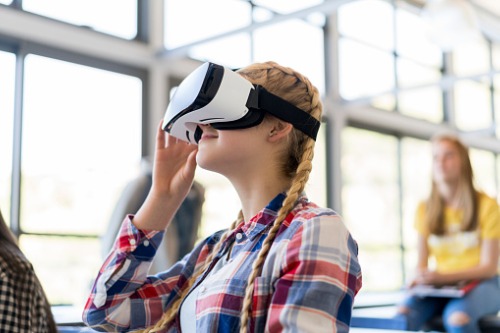
Across Australia, schools continue to harness the benefits of technology, and many universities have already made changes to their curriculum to integrate digital technologies into their course offerings.
One university that has a keen interest in developing Virtual Reality (VR) and Augmented Reality (AR) is The University of South Australia. Earlier this month, the university announced that it would be collaborating with the Massachusetts Institute of Technology (MIT) on data visualisation and AR research.
In July, the University of Newcastle announced a partnership with VRTY to look into how VR can improve learning opportunities for K-12 students. The collaboration aims to better understand how VR can be used to enhance learning opportunities and outcomes for students in primary and secondary schools.
However, one expert says schools and universities should exercise moderation when using technology such as VR.
Tomas Trescak, a senior lecturer in Intelligent Systems at Western Sydney University, researches and develops VR.
In an article published in The Conversation, Trescak pointed to the health concerns related to the use of VR such as nausea and eye-strain – often caused by developers who prioritise the “exciting content” over the usability of the technology.
Contrary to what universities might hope for, Trescak said the current offerings of VR lack imagination and may continue to do so unless future developers intervene.
A word of advice for future VR developers
“I really hope VR is on its way to becoming more mainstream, more exciting, and less underwhelming. But we scientists can only present new technological solutions, to help make VR a more comfortable and enjoyable experience,” Trescak wrote.
“Ultimately it is down to VR developers to learn from existing success stories and start delivering those ‘killer apps’. The possibilities are limited only by imagination.”
Trescak believes this is because most developments in VR are only about those that already exist in real life, such as making users drive cars in games like in Second Life.
Janna Thompson, a professor of Philosophy at La Trobe University, agrees.
Professor Thompson is particularly concerned about the use of VR in tourism, as the emotions felt are “not as valuable” when compared to when people visit the actual location. Further, she notes that VR does not provide the opportunity for discoveries, especially when it comes to researchers such as archaeologists.
“Virtual reality can take us to places we can never go. It can teach us by putting us in the place of others,” Professor Thompson wrote in The Conversation.
“It can be exciting, amusing and a good way of spending leisure time. But it will never be a substitute for encounters with the real thing.”


